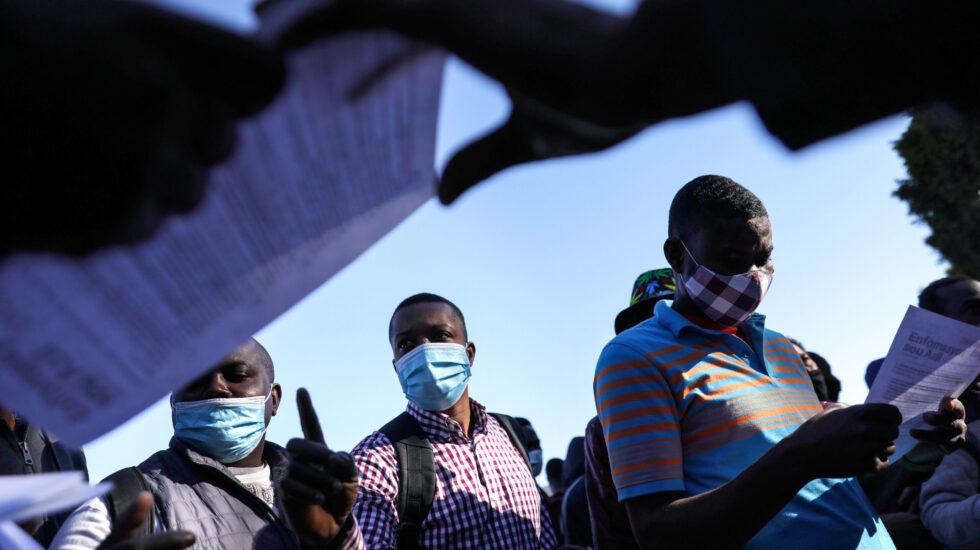Nearly ten thousand migrants, many from Haiti, have arrived at the border town of Del Rio, Texas and the surge in arrivals has authorities struggling to process them all.
The massive upswing in migration across the Rio Grande this week has created a huge bottleneck as U.S. Border Patrol have been unable to keep pace with the number of people arriving. A temporary camp has been set underneath the Del Rio International Bridge for the migrants that have arrived while agents work to process them.
The camp is already crowded and it’s only expected to get worse as Border Patrol officials expect thousands more to make the journey across the river from Mexico to Texas in the next few days.
The New York Times says more agents are heading to Texas to help deal with the growing humanitarian concerns over the condition in Del Rio, which is about 150 miles west of San Antonio. The staging area was set up under the bridge because the Border Patrol wanted to guard against heat stroke, dehydration and other weather-related illnesses while the migrants wait to be processed.
The sight of dense crowds of people sleeping on the ground and huddled together in extremely hot weather and deteriorating sanitary conditions has already led to local officials like Texas governor Greg Abbott blaming the Biden Administration. Abbott ordered the state police and the National Guard to go help border agents in Del Rio, criticizing the federal response as being inadequate.
Bruno Lozano, Del Rio’s mayor, said Thursday he is concerned about the lack of clean water, food and few portable toilets available for the migrants, the majority of those who appear to have come from Haiti. That country has been devastated by several natural disasters and plunged into further chaos by the assassination of its president, Jovenel Moïse, back in July.
More from the Times:
The Southwest border has been inundated in recent months with a surge in unauthorized crossings not seen in more than two decades. More than 200,000 people crossed last month, bringing the total this fiscal year to more than 1.5 million. The Del Rio border sector has seen high migrant traffic this year, particularly from Haitians who started arriving in much higher numbers beginning in June, when there were more than twice as many caught crossing the border illegally than in the previous month. And the numbers continued to go up in July and August, according to recent border statistics. Earlier this week, even more Haitians were caught trying to cross through the Del Rio region, a desolate 245-mile stretch of the United States border with Mexico. By Thursday, the Department of Homeland Security sent additional officers to the region to help relieve the backup, according to an official familiar with the plans who spoke on the condition of anonymity because the person was not authorized to speak publicly about the matter.
This week’s surge is the latest controversy regarding the border that President Biden has faced. The White House has come under intense criticism from conservatives who say the president has mishandled the situation.
Government officials reportedly plan to fly some of the migrants to other parts of the border that are not as crowded. Return flights to Haiti are set to begin on Monday, something the Biden administration intends as a signal to other Haitians who are thinking of coming to the southern border.
